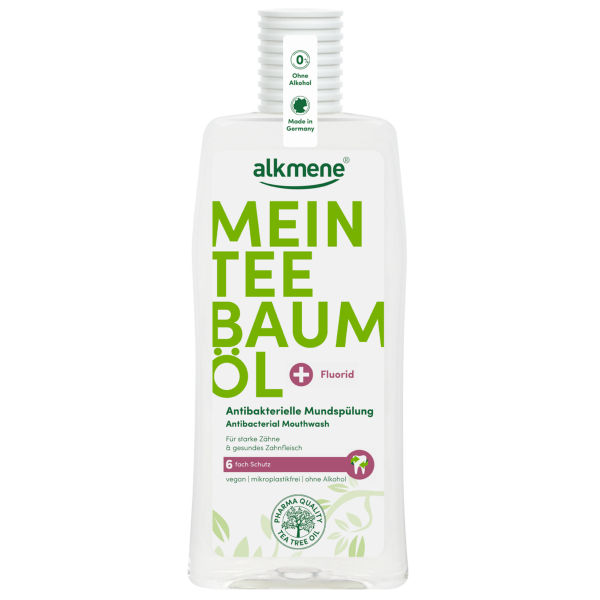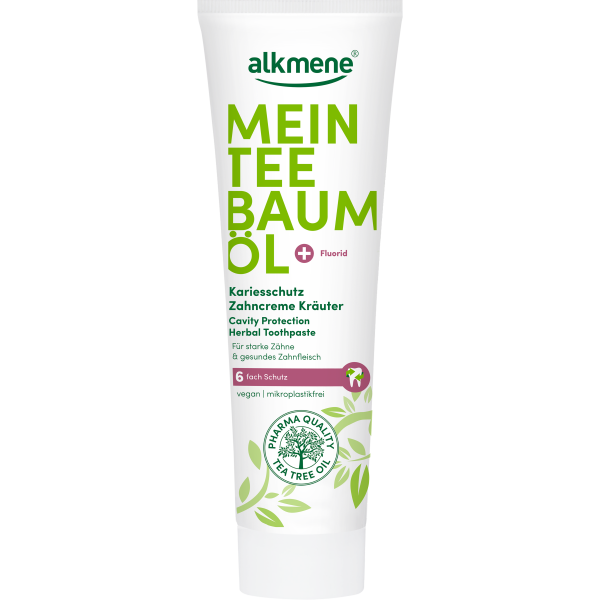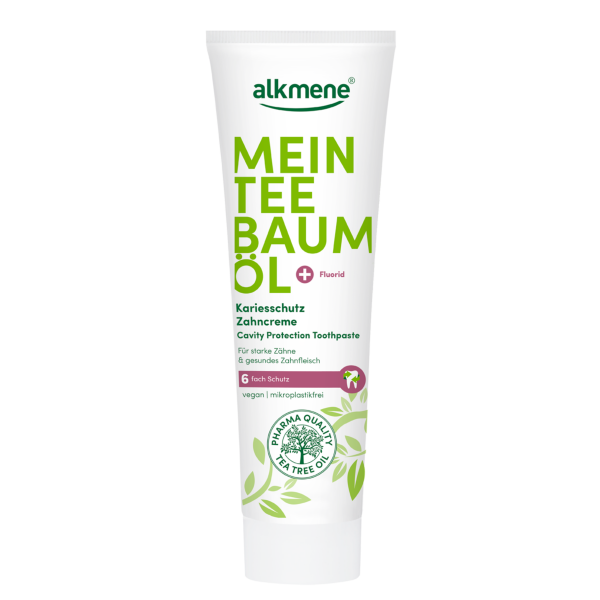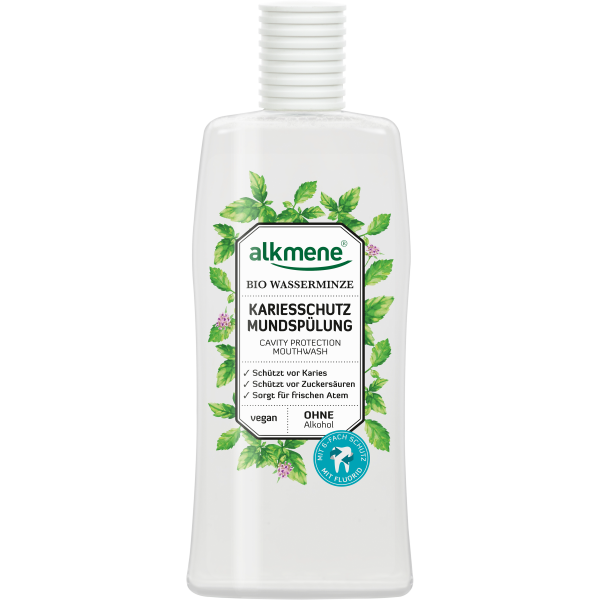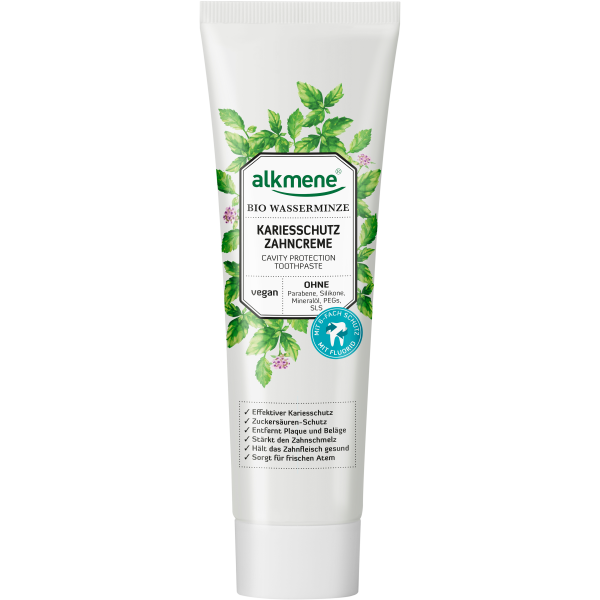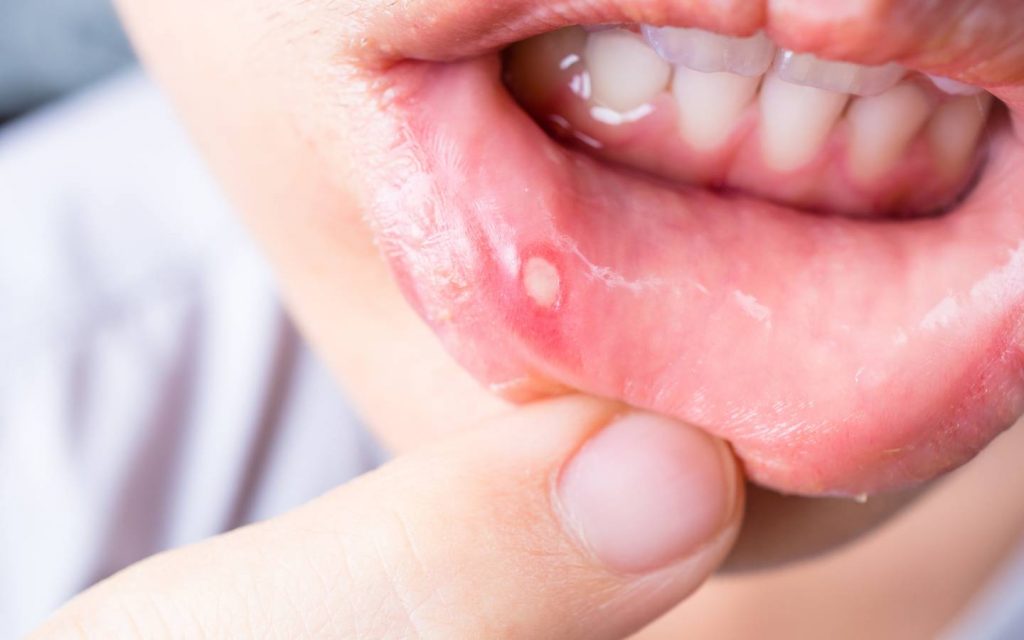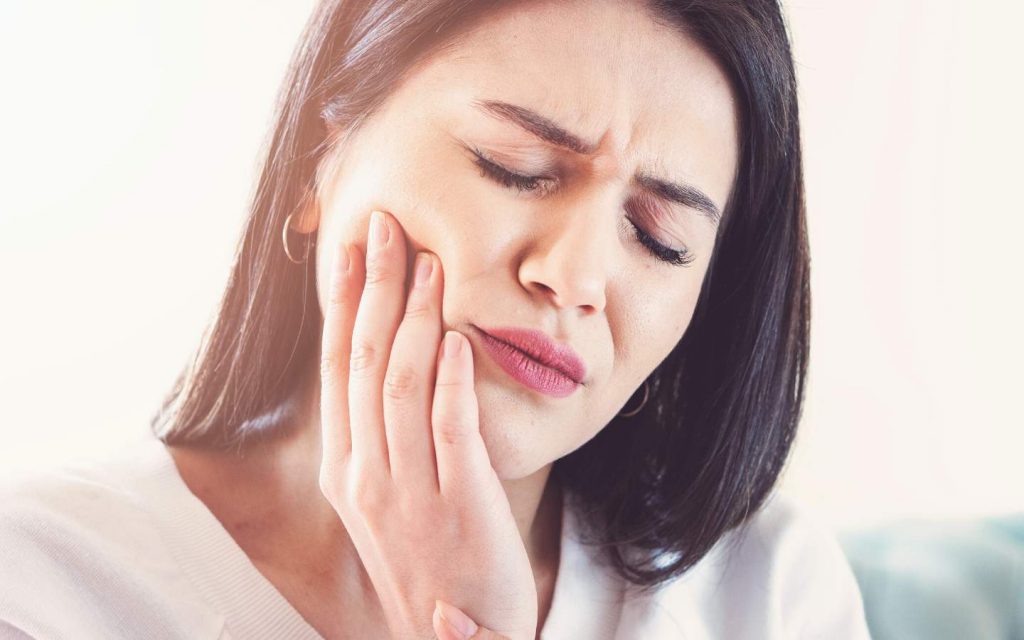


This article has been reviewed by:
Birgit Schlee
Dental hygienist
Caries, tooth decay, or simply: a hole in the tooth. The bacterial infectious disease caries is one of the most common dental diseases of all. Almost everyone has been affected by the painful holes at least once – whether child or adult.
It almost seems as if nothing can be done against this dental disease. But of course there are ways and means to prevent tooth decay! We’ll now tell you exactly what they look like and how caries develops in the first place.
How does caries develop and how do I detect caries at an early stage?
In order to be able to prevent and recognize caries, it is important to know how caries develops. Perhaps you remember the two cheerful bacteria Karius and Baktus from the children’s book of the same name, who cheerfully chisel holes in the teeth to make themselves at home there?
In simplified form, that’s exactly what happens when tooth decay develops in the mouth: Dental caries is triggered by certain bacteria that live in the oral cavity and, in particular, in dental plaque. They feed on sugars from the food we eat and excrete acids as a metabolic product.
The acids described above then attack the enamel and dissolve out minerals. The enamel is then decalcified, which manifests itself as whitish discoloration. In this first phase, caries is also called initial caries. However, no cavity has developed yet and the further stages can still be well prevented.
Recognizing initial caries: Unfortunately, the bright spots on the teeth are very difficult to detect. An effective method in this context is an X-ray at the doctor’s office. So if you occasionally suffer from tooth sensitivity, you should have this clarified quickly.
If caries is not detected at an early stage, the bacteria can continue to destroy the tooth enamel unhindered. The well-known pain is caused by the bacteria attacking the dentine (also called dentin) under the enamel, where cell processes are located.

Recognizing dental caries: You can recognize the second caries stage by light brown spots on the teeth, for example. Another characteristic is the first toothache, sensitivity when eating cold or hot foods, and holes that become visible.
Caries is particularly common on molars and in the interdental spaces. Plaque can often easily build up there, as we have difficulty reaching these areas with a toothbrush. Special care is therefore required in these areas.
Unfortunately, the development of caries does not stop at the destroyed dentin. In the next step, the pulp can be reached: Here are the not only the blood vessels, but also the nerves of the tooth.
Detect deep dental caries: At this stage, tooth pain is usually severe and persistent, often requiring root canal treatment. A foul odor may also be noticeable due to the inflammation.
How can you effectively prevent caries?
In order to prevent caries, it is important to know which influences promote caries. There are four main factors: Bacteria, sugar, the condition of the teeth and time. They play an important role if you want to prevent tooth decay effectively.
The following points, which you can follow to prevent tooth decay, are part of the current guidelines on caries prophylaxis, which you can find, for example, on the website of the AWMF (Association of the Scientific Medical Societies).
Regular brushing removes plaque, which gives bacteria no basis for producing acids (if you want to learn how to brush your teeth properly, read this article). Dentists recommend brushing your teeth thoroughly at least twice a day, preferably with a fluoride toothpaste, as fluoride inhibits acid-induced decalcification of the tooth. The vegan MY TEA TREE OIL Caries Protection Toothpaste effectively protects against tooth decay and strengthens the tooth enamel due to its balanced formula with tea tree oil and fluoride (a tasty alternative to our Caries Protection Toothpaste is our MMY TEA TREE OIL Caries Protection Herbal Toothpaste).

The tip from dental hygienist Birgit Schlee:
The use of mouthwash is a valuable and important supplement to effectively prevent tooth decay and gingivitis.
Sugar in our daily food increases the risk of tooth decay. But you don’t have to give up sugar completely. The decisive factor is how long the sugar remains in the mouth. The longer the food sticks to the teeth and the more frequently the body is fed sugary foods throughout the day, the more time bacteria have to produce the harmful acids.

Foods that already contain acid by themselves attack tooth enamel. These include, for example, citrus fruits, soft drinks and juices. “Tooth-healthy” are all foods that need to be chewed thoroughly (e.g. wholemeal bread, raw vegetables, apples or nuts), because this stimulates the flow of saliva and supports the remineralization of the teeth.
Chewing gum, especially after eating or drinking, is also an effective method of preventing caries, as it stimulates the flow of saliva. This allows harmful acids to be neutralized by the natural cleansing function of saliva. However, make sure to use sugar-free chewing gum.
In order to be able to detect caries at an early stage, i.e. when no cavities have developed yet, regular examinations by your dentist are important. At least one visit per year is recommended.
Are there groups of people who are particularly susceptible and should be even more likely to prevent caries?
In principle, caries can form in anyone and it is advisable for everyone to take the appropriate measures to prevent caries. Nevertheless, there are circumstances that make it easier for caries bacteria.
For example, milk teeth in children offer special conditions for caries because they are softer and can be attacked more easily. Since the permanent teeth already develop under the milk teeth, there can also be a risk that they are already infected with caries bacteria before they erupt.
Pregnancy can also lead to an increased incidence of caries. Hormonal changes and changes in eating habits upset the natural balance of benign and harmful bacteria in the oral cavity, making it easier for harmful caries bacteria to take hold.
Older people aged around 60 and over can also be affected more frequently by caries, as the gums gradually recede with age. The unprotected tooth necks can then be particularly easily attacked by caries bacteria.
![]()
